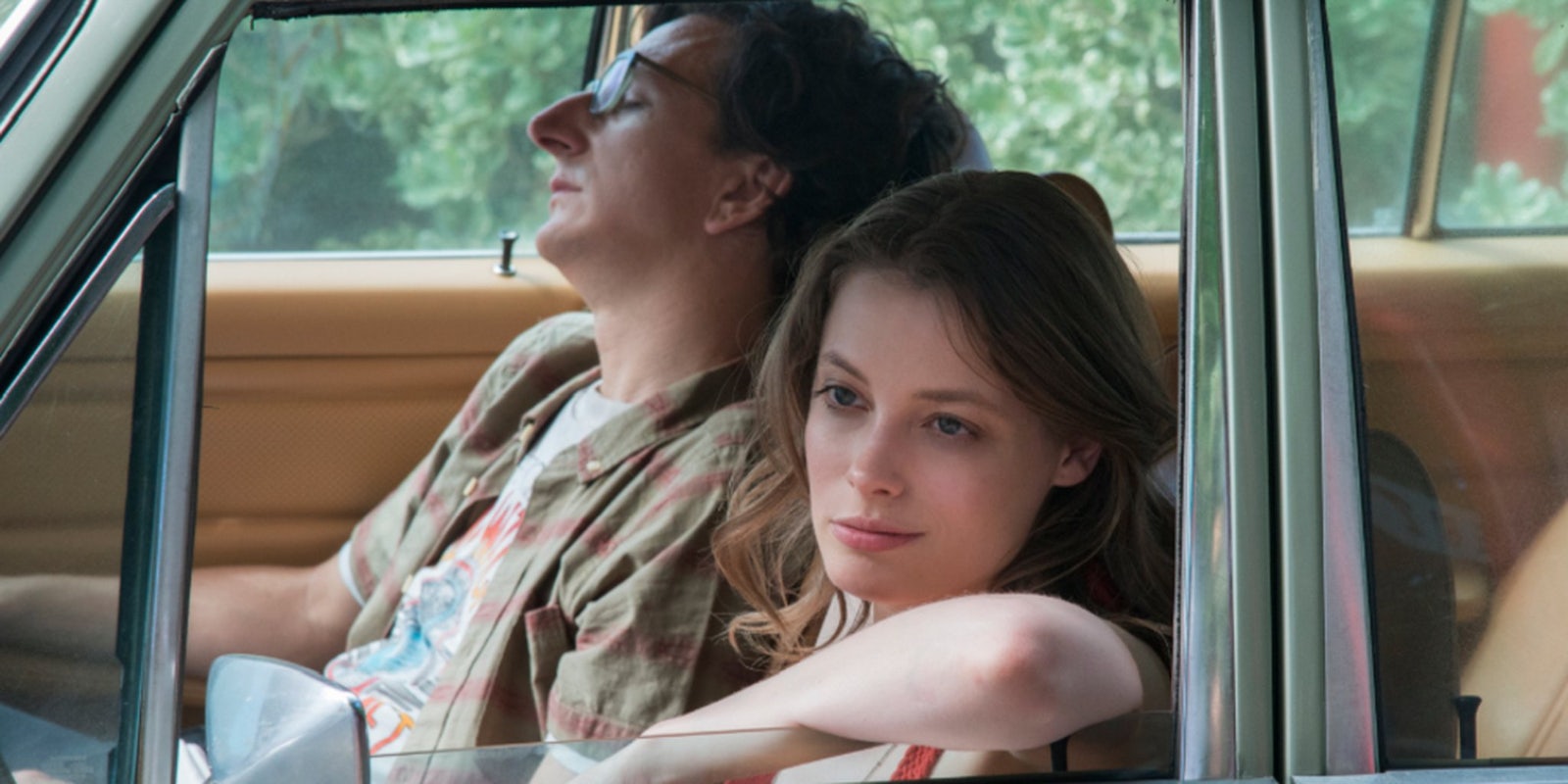Love, the new Judd Apatow-helmed Netflix comedy, is ultimately a series about addiction, but it takes a while to open up.
Since Love (not to be confused with Gaspar Noe’s NSFW film of the same name, which is also on Netflix) is an Apatow joint, it doesn’t stray too far from his usual formula: Gus (Paul Rust) is a goofy, nerdy guy who’s going through a rough time and happens upon the the sarcastic, self-destructive Mickey (Gillian Jacobs) at a convenience store. Gus has just been broken up with after being labeled “fake nice”; Mickey is trying to untangle herself from a codependent relationship, though not very hard. It takes an entire episode, but eventually they collide in L.A. in a way that perfectly illustrates their respective flaws.
Eventually they collide in L.A. in a way that perfectly illustrates their respective flaws.
That first episode might not hook people; it takes its time showing us exactly what Love will be about. Until their somewhat depressing meet-cute, we’re shown their parallel lives: Gus tries to embrace being single and have fun at a party and inexplicably gets approached for a threesome, which he bungles. Mickey, meanwhile, takes an Ambien and travels (perhaps in a dream) to a new age church with her newly sober ex (Kyle Kinane). “Love doesn’t just happen,” the church’s preacher explains mid-sermon. In response, Mickey hops onstage and declares, “Hoping for love has fucking ruined my life.”
That tone persists throughout Love. If the show’s whiteness and focus on dysfunctional relationships and awful people hits a little too close to HBO’s Girls, it could be because former writer Lesley Arfin wrote and created Love, along with real-life partner Rust. How much of Mickey and Gus’s relationship is theirs? It’s tempting to project, but it’s not a stretch to say Mickey’s probably a channel for Arfin, who has written openly about her past addiction issues.
Later in the series, we learn that Mickey binges, not just on alcohol and drugs but also people. There’s an extended scene involving Andy Dick, in which he and Mickey both speak honestly about their addictions after a night of fully indulging them. As with real addictions in relationships, it takes a while for them to become apparent—or presented as a problem.
There’s comedy, too: A date between Gus and Mickey’s roommate Bertie (played by the wonderful Claudia O’Doherty), which is facilitated with not-so-pure intentions by Mickey, resembles a longform improv bit helped along by an increasingly ridiculous text pile-up. In episode 2, Mickey accompanies Gus to his ex’s house so he can retrieve his Blu-rays; he angrily tosses each one out the window while giving savage reviews, as Mickey cheerfully eggs him on:
“Goodfellas? It’s like, I listen to these fucking commentaries with Scorsese and it’s like, ‘Oh, hey, guess what? All the food in Goodfellas is based on my mom’s recipe.’ It’s like, who cares?!”
Love excels with these kinds of scenes. When Mickey and Gus finally get intimate, Mickey pulls out a vibrator in order to climax, showing just what her definition of intimacy is. Elsewhere, a cringe-worthy scene in the refreshingly diverse writers’ room of a TV show Gus is working on reveals the flipside of his Nice Guy persona. Mickey isn’t the only damaged one.
Love is perhaps closest in tone to FX’s sleeper hit You’re the Worst, which explores addiction and depression as two relationship-averse people try to make one work. Whereas You’re the Worst’s second season ends with Jimmy neatly “fixing” Gretchen’s depression, Love doesn’t make human connection that simple: There’s an uneasy sense that these people should probably not be together, but that’s largely because we don’t get a true sense of who either of them really is in 10 episodes.
The series has been picked up for a second season, so there’s room to open up, but Love is at its best when it forgoes the romance and butterflies and digs into the darker stuff. Perhaps the love of the title isn’t between two people, but the kind we show ourselves.
Photo by Suzanne Hanover/Netflix


